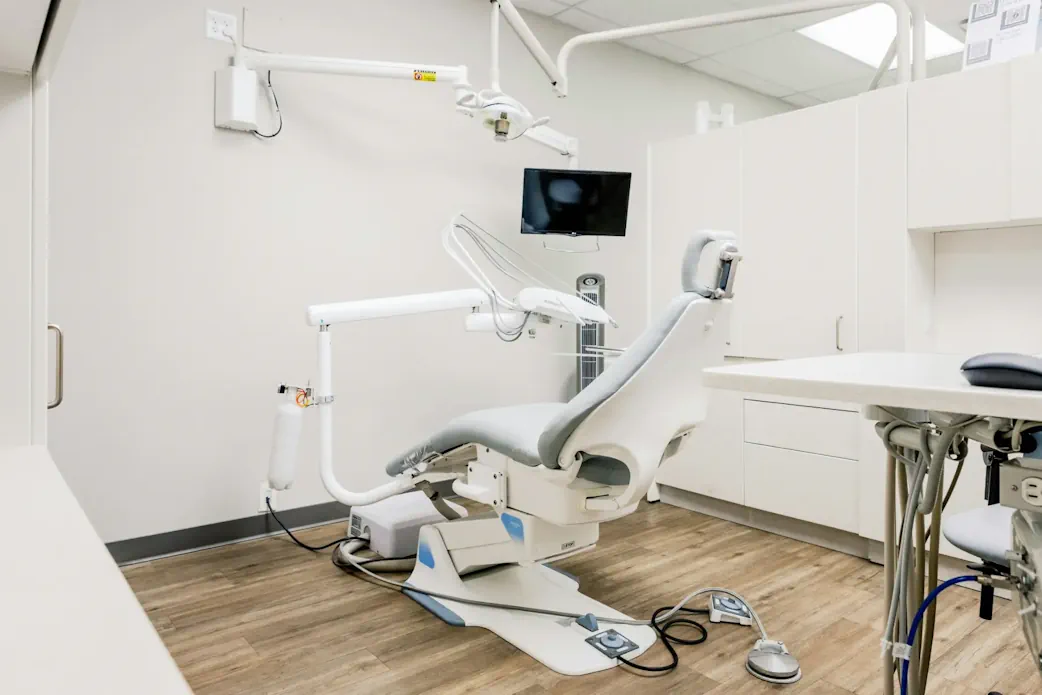Are you seeking guidance on how to sell a dental practice? Whether you want to retire or are looking to move out of the area, selling a business like this can be exciting, but it can also come with its own set of complications. However, with the right steps and a skilled legal team behind you, your selling journey can run more smoothly.
Read our guide below on how to sell a dental practice to better understand how to navigate this process.
How to Sell a Dental Practice: Step-by-Step Guide
In our best efforts to help you understand how to sell a dental practice, we’ve outlined the following steps, which you can go through at your own pace.
1. Establish a timeframe
Firstly, consider when you would like to sell your dental practice. You’ll want to give yourself at least six months to get things sorted. However, the 12- to 24-month mark would be ideal for giving you time to boost profitability, resolve any compliance issues, and make your practice more attractive to prospective buyers.
Once you know when you would like to sell, consider the timeline between now and that point and establish what you need to do within that frame. For example, you need to evaluate your dental practice’s current financial performance and profitability, outlining any necessary actions for improvement in these areas if necessary. This will help you increase your appeal to potential buyers in the long term.
2. Maximise your dental practice’s valuation
What is the average value of a dental practice?
The value of a dental practice can vary, influenced by factors like your profitability and location. You can calculate your practice’s value as a multiple of its Earnings Before Interest, Taxes, Depreciation, and Amortisation (EBITDA).
If you’ve not done so already, take on the following strategies to give your practice that profitability boost it requires:
- Review your pricing structure
While you’ll want your products and services to remain competitive, you’ll also need them to be profitable. Consider the quality of your service and what your target customers would be willing to pay.
- Promote high-margin services
While maintaining a steady flow of regular check-ups, you may want to promote your higher-margin services, such as cosmetic dental treatments, to increase your profit. Experiment with new marketing methods to increase awareness of these services.
- Increase patient retention
If you notice that your patient retention could be improved, focus on enhancing patient engagement and gathering feedback. Encourage them to fill out online reviews or complete paper feedback forms to get a better idea of what you can do to provide your patients with a better dental experience.
- Upgrade equipment
While equipment will cost you in the short term, it’s a long-term investment. Not only will premium equipment inspire your patients’ confidence, but it may also help you complete tasks more efficiently, potentially speeding up your services and enabling you to attract more customers. Remember to audit stock levels to avoid over-ordering and waste. Try building a stronger relationship with your suppliers and negotiating more favourable prices, if possible.
- Reduce failed appointments
Failed appointments are a pet peeve of many dentists. Implement automated reminders via SMS or email, and create a clear cancellation policy to encourage patients to attend their appointments. For those who struggle with daytime hours, you could offer early morning or evening appointments to optimise chair time and protect your income.
3. Get in touch with the experts
When selling a dental practice, you can’t do it alone. Remember to surround yourself with experienced advisors who understand the sales process. These include:
- Solicitors
A dental industry legal specialist can help draft and review contracts, monitor regulatory compliance, and ensure due diligence. Choosing a solicitor with specific experience in the dental industry will help avoid delays or even the collapse of a deal during the selling process.
- Brokers
A specialist broker will assist you in marketing your dental practice and match you with the right kinds of buyers. They typically have access to interested buyers who may want to purchase your dental practice.
- Accountants
An accountant will help you with your financial statements, tax planning, and business valuation. They will help you understand your up-to-date financial and account information, which you’ll have to present to prospective buyers. A specialist dental accountant will also be able to offer advice on optimising your tax position.
A team of professionals will likely maximise your sale price and ensure a legally sound transaction, giving you peace of mind throughout the entire process.
4. Prepare, prepare, prepare
When it comes to how to sell a dental practice, preparation is key and will help prevent delays further down the line.
Here are some ways you can prepare for selling your dental practice:
- Gather necessary documentation
You may need critical documentation such as NHS contracts, leases, staff contracts, CQC inspection ratings, associate agreements, and accounts. Additionally, you should document any verbal agreements to reduce the risk of disputes occurring.
Once your preparation is in place, your broker can assist you in listing the practice professionally, giving you the reassurance that your interests are best protected.
- Draft a non-disclosure agreement
If necessary, you may want to get the help of a solicitor to draft a non-disclosure agreement for your potential buyers. This will help keep your practice’s important information confidential in the event that a competitor wants to understand your business better.
- Market your dental practice
Marketing your business properly will help attract the right buyers. Here’s how to market your dental practice:
- Hire a specialist broker
Your broker will help you gauge the interest of potential buyers, particularly as they will have access to a network of vetted buyers.
- Prepare a prospectus
Your broker can help you create a professional, confidential information pack that offers details on your practice, including the type of dental practice you want to sell, the location, key financial information, and unique selling points. This will help buyers quickly understand if this is the right business for them or not.
- Use online platforms
Your broker can help you list your practice on dental sale websites to increase exposure to your target audience.
- Make yourself available
While your broker and agent can offer a big helping hand when it comes to marketing your dental practice, we always recommend that you, as the owner, be present during the viewing. After all, no one knows your practice better than you do!
6. Select the right buyer
Don’t accept the first offer that comes your way. While you’ll be tempted to focus solely on the price your buyer is offering, don’t neglect to consider other factors, such as the buyer’s experience with dental practices and their plans for your current staff. For example, you may request that they keep certain members of your team on or that you continue working at the practice for several years.
You’ll want to go for a well-matched buyer who minimises disruption for both patients and staff, so don’t be swayed by a high offer alone. After all, your buyer may offer a large price tag and then find it challenging to secure funding for the deal.
7. Negotiate a deal
Once you’ve spotted a potential buyer that looks promising, it’s time to negotiate a deal. Agree on a method of payment, the payment structure, a timeline for the target completion date and what’s actually included in the sale. Discuss whether you will have any post-sale involvement in the dental practice and any other details you would like to establish before signing. Once the deal has been negotiated and agreed, Heads of Terms should be put in writing. This can help avoid costly misunderstandings in the future.
Once the Heads of Terms have been agreed and signed, the buyer will want to carry out the due diligence process on what they are buying. Depending on the type of buyer, this can be quite a thorough process, which requires you to be organised and cooperative with the requests.
The information you should have to hand is as follows:
- Financial records for the last 3 financial years.
- Employment and self-employed persons’
- Any disputes with staff.
- NHS Contract and pay statements (if an NHS practice).
- Commercial contracts.
- CQC registration details and the last inspection.
- Hire purchase/lease agreements.
- Inventory of items to be included in the sale.
- Equipment maintenance reports.
- Any patient plan agreements and figures concerning current patients of the practice.
- Details of patient complaints.
- Property deeds/copy of property Lease.
Once the due diligence process is underway and the buyer has a better picture of the practice, the buyer’s solicitor will put the terms of the deal in writing in what is known as a Sale and Purchase Agreement. Your solicitor should check over the contract to ensure that everything has been addressed properly. Never sign a contract without sound legal advice from your dental specialist solicitor.
8. Final checks and completion
Once both parties are satisfied with the contract, and the buyer has completed the due diligence process, the focus will be on finalising the transaction. Your solicitor will receive the funds from the buyer’s solicitor, and the parties can exchange and complete. However, the mechanics of exchange and completion will vary depending on whether there will be a split exchange and completion (more common in NHS practices), or a simultaneous exchange and completion. Your solicitor will then transfer the funds to you. Remember to consult with a tax advisor to understand the tax implications of the sale when buying or selling commercial property.
Require Assistance with Selling Your Dental Practice?
If you would like to start the process of selling your dental practice, it’s important to seek the right legal advice. At Newtons Solicitors, we specialise in dental practice sales and are here to guide you through every single step of the way, from the first conversation to completion. Our dental law team ensures that your best interests are taken care of so your sale can run smoothly.
Get in touch today to schedule your initial consultation.


